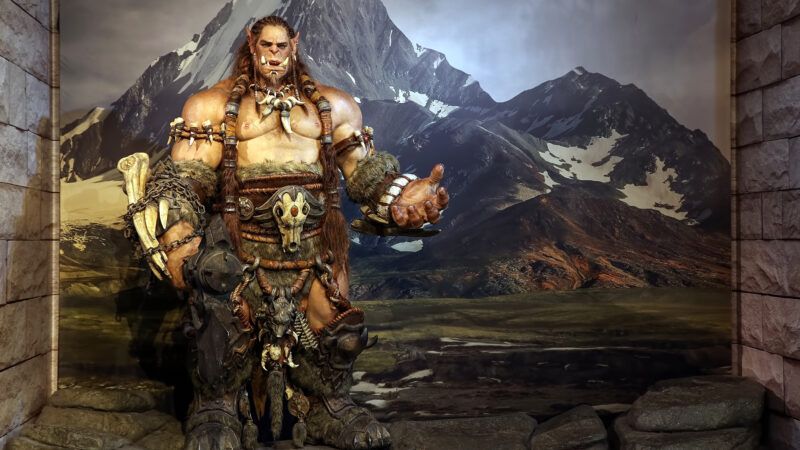Is Dungeons & Dragons Eliminating 'Inherently Racist' Half-Elves, Half-Orcs?
By forcing mixed-race characters to choose one or the other, the game is arguably doing something more problematic.

Wizards of the Coast, the company that publishes the official materials for the role-playing game Dungeons & Dragons, is planning to eliminate the "half-elf" and "half-orc" races in forthcoming editions because "the half construction is inherently racist," according to game designers.
"Frankly, we are not comfortable, and haven't been for years, with any of the options that start with 'half,'" said Jeremy Crawford, a D&D rules designer, at a virtual event last weekend.
To play D&D, it's necessary to design a character with a specific race (human, elf, dwarf, gnome, etc.) and a specific class (ranger, barbarian, cleric, etc.); the official materials offer guidance for doing so. The races and classes have specific characteristics—elves have a long natural lifespan, orcs can see in the dark, and so on.
But players can also make a character with mixed racial traits. Half-elves are characters with one human parent and one elf parent. Half-orcs are characters with one human parent and one orc parent. While it's possible to design other mixed characters—again, the officials materials make clear that everyone can do whatever they want—those two combinations are the specifically listed ones, and they have their own traits.
Well, not anymore: According to several reports from D&D players who witnessed the event, the official materials are dropping these classes due to concerns of inherent racism. Players who want a mixed character will be advised to choose one race from which to draw their traits. So even if you're going to play as a half-elf, the game will prompt you to select either elf or human to round out your game-related qualities.
To be abundantly clear, it's Wizards of the Coast's game, and they can design it however they want—and they encourage their players to adapt and/or ignore the rules at their discretion. Still, it's unclear why they decided that having officially published "half" characters is "inherently racist." On the contrary, one could argue that partially erasing the identities of half characters by compelling them to identify as one or the other is vastly more problematic. Must half-elves choose between human and elf when they fill out that section of their college applications? Will half-orcs endure microaggressions—Ugroar the Vile, your common speech is terrific—at social gatherings?
Wizards of the Coast did not respond to a request for comment. The company has already committed to removing the word race and replacing it with species—probably at the behest of sensitivity readers—even though the broader concept of race-based traits will remain. This decision concerning mixed characters feels similarly, ahem, half-baked.


Show Comments (159)